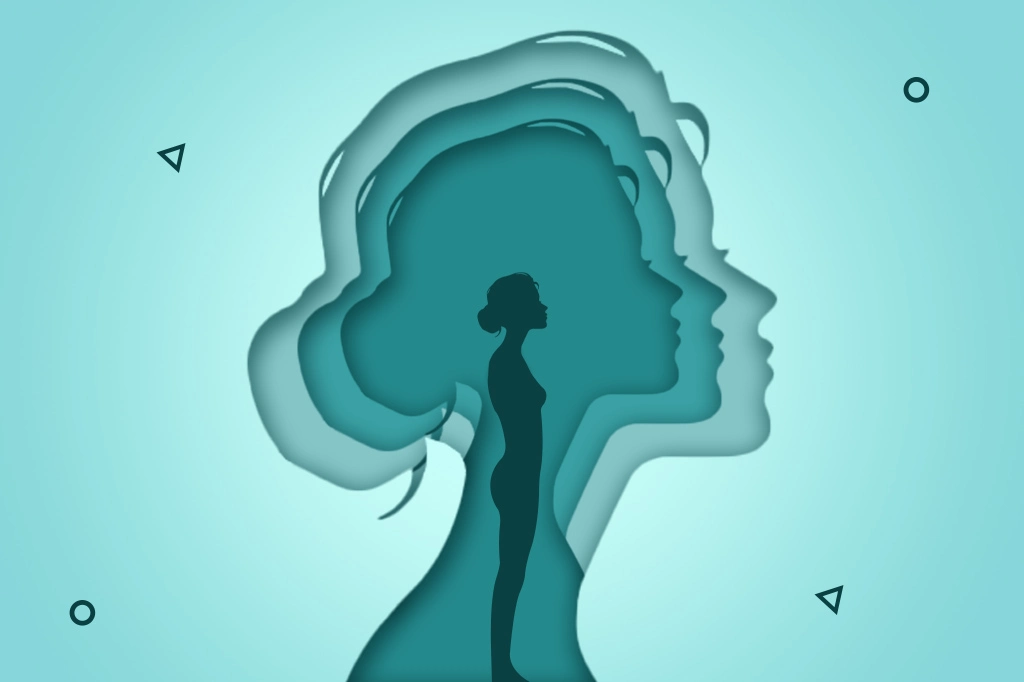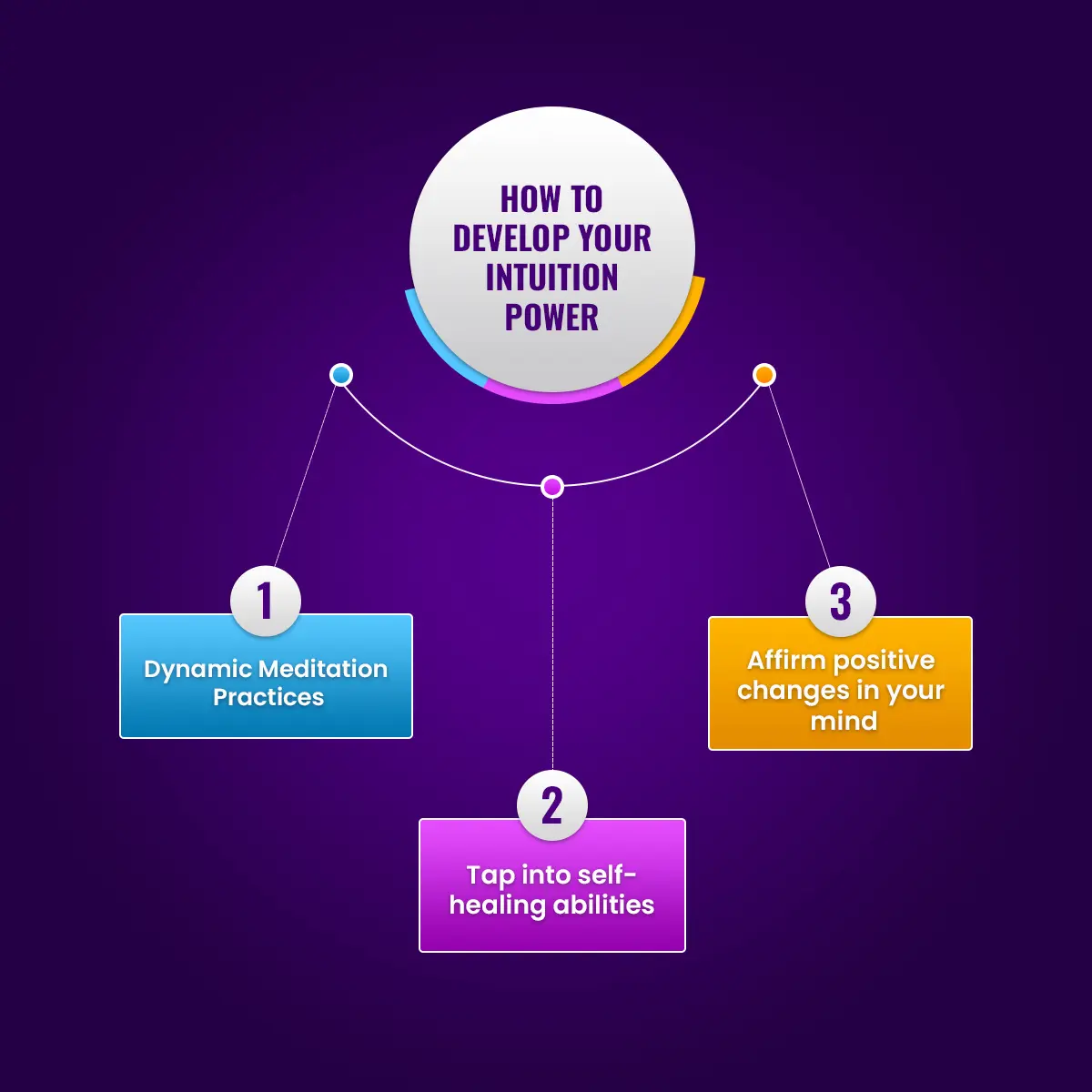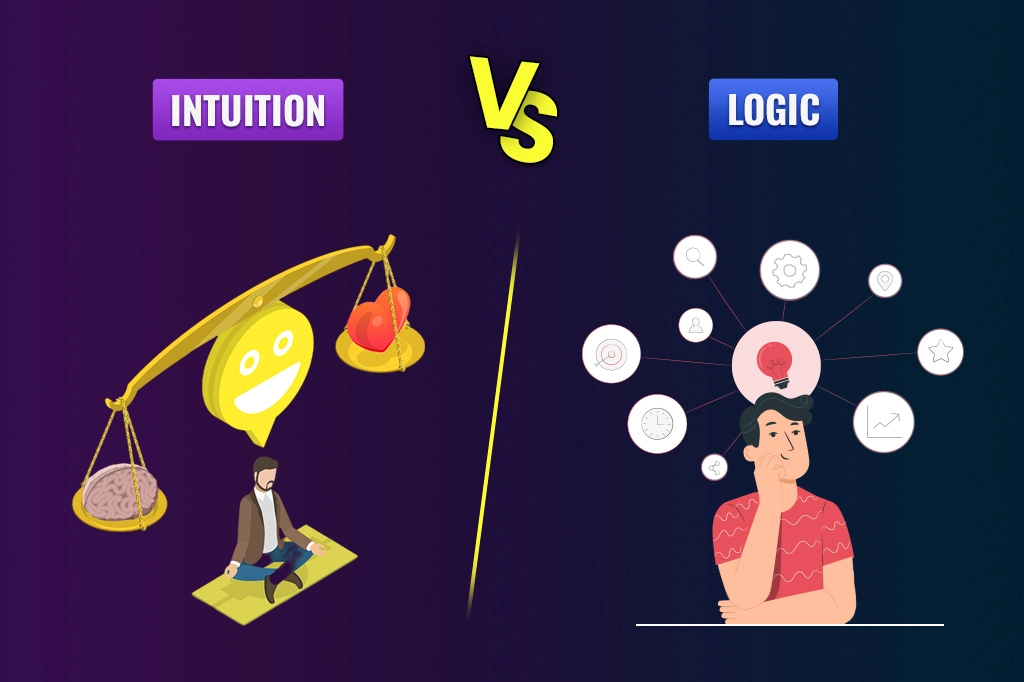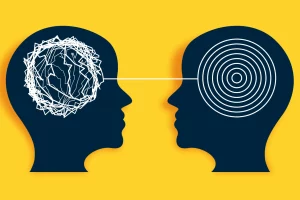
10 Benefits of Trusting your intuition
Table of contents:
- Introduction
- How does intuition work?
- A breakdown of how intuition works
- How does intuition benefits us in different areas in life?
- The science behind intuition
- 3 steps to develop intuition with the Silva Method
- How Silva Method can help you develop your intuition power?
- Intuition Vs. Logic: How to balance?
- 10 benefits of listening to your intuition
- Conclusion
“Ever felt a whisper within yourself? A nudge that guides you towards the unknown? That’s the magic of intuition—a silent force that speaks louder than words.”
Intuition“—this term is known to many of us and is one of the most powerful abilities, often described as a gut feeling, inner voice, or sixth sense. Intuition can manifest as sudden insights, hunches, or feelings that guide our decisions and actions. It’s believed to draw upon subconscious knowledge and experiences, helping us navigate situations where explicit reasoning may be insufficient or impractical. Intuition can vary in strength and reliability from person to person and can be developed through mindfulness, experience, and reflection.
Intuition is a gut feeling that wants us to trust our inner voice that is more intense than our conscious mind. Your gut feelings can save you in many circumstances in your life. But trusting your gut is not so easy; it takes time and some practice. In this blog post, we will learn all about intuition, how to develop it, and how to know that your intuition is right. Read the blog to know more:
How does intuition work?
Gut feeling, or intuition, is just a pattern of thought that comes into our mind based on the series of events that happened in our lives. Our sub-conscious mind gathers information that our conscious mind is not aware of, and this happens not only when you are in a sleeping state but also in a conscious state. Our intuition arises when significant matches or mismatches between recent and past experiences are made by our brain. Our brain is a predictable tool that compares new experiences with past events, which leads to the ability to make future predictions.
Here's a breakdown of how intuition works:
1. Our brains continuously process vast amounts of information from our surroundings, past experiences, emotions, and bodily sensations, even when we’re not consciously aware of it.
2. Intuition often works by recognizing patterns or similarities between the current situation and past experiences. These patterns can be related to people, places, events, or emotions.
3. Intuition is closely linked to our emotions. Gut feelings, hunches, or intuitive insights often come with an accompanying emotional response, signalling the significance or relevance of the information.


4. Intuitive judgments are made rapidly and without conscious effort. Our subconscious mind evaluates the available information, assesses potential outcomes, and generates a feeling or sense of what the best course of action might be.
5. Intuitive insights can emerge suddenly, seemingly out of nowhere. They may manifest as a gut feeling, a sudden realization, or a sense of knowing without logical explanation.
6. Intuition can be influenced by our existing beliefs, biases, and cultural conditioning.
However, you have the power to develop your intuitive power with the guidance of Silva Method Combo Course and can explore more about an authentic way to engage in dynamic meditation and personal growth program.
Summary
Intuition is a subconscious process where our brain rapidly evaluates information from past experiences, emotions, and sensory input. It recognizes patterns and similarities between current situations and past events, often accompanied by an emotional response. Intuitive judgments are made swiftly and without conscious effort, leading to insights or gut feelings that guide decision-making. These insights can emerge suddenly and are influenced by our beliefs and cultural conditioning, providing a unique and often invaluable perspective on navigating life’s complexities.
How does intuition benefit us in different areas of life?
Intuition plays a very important role in different areas of our lives and leads us towards a decision that often turns out to be the right one. Let’s understand the various roles of intuition:
1. Decision-Making: Intuition often guides decision-making, especially when faced with complex or ambiguous situations where logic alone may not suffice. It can help individuals make quick, instinctive decisions based on gut feelings or inner knowing.
2. Problem-Solving: Intuition can provide insights and solutions to problems that aren’t immediately obvious through rational analysis. It allows individuals to tap into their subconscious knowledge and creative thinking to find innovative solutions.
3. Creativity: Intuition is closely linked to creativity, as it enables individuals to access unconventional ideas, perspectives, and inspirations. Artists, writers, musicians, and innovators often rely on intuition to fuel their creative process and produce original work.


4. Relationships: Intuition plays a crucial role in interpersonal interactions and relationships. It helps individuals perceive subtle cues, emotions, and intentions, fostering empathy, understanding, and rapport with others. Intuitive insights can also guide relationship decisions and help navigate social dynamics.
5. Personal Growth: Intuition serves as a valuable tool for personal growth and self-discovery. It can offer guidance on life paths, goals, and values, helping individuals align with their authentic selves and pursue fulfilling endeavors. Intuition also aids in self-awareness, introspection, and intuitive decision-making.
6. Health and Well-Being: Intuition can play a role in health-related decisions, such as recognizing symptoms, choosing treatment options, and adopting lifestyle changes. It can also help individuals tune into their body’s needs and signals, promoting overall well-being and self-care.
7. Spirituality and Mindfulness: In spiritual practices and mindfulness traditions, intuition is often regarded as a pathway to higher consciousness and spiritual insight. It can facilitate experiences of connection, intuition, and transcendence, leading to greater spiritual awareness and growth.
The science behind intuition:
We are asked to trust our intuition, but is it really that simple? Many of us have intuition, but we don’t fully understand it. It may come in an impulsive way towards a specific decision, for example, when you can’t trust a person, get a sudden urge to leave your job, or simply get the wrong feeling to go somewhere.
But, no matter how much our intuition helps us, with a lack of evidence of its existence, some of us back away from trusting intuition. But the scientific study of intuition has proved that intuition is an important aspect of human cognition.
On a practical basis, there is a neurological reason behind it:
Scientists suggest that intuition works on multiple regions of the brain, specifically the right hemisphere, the hippocampus, and the gut. Emotion and intuition are physically present in our gut, known as the “second brain.” This typically refers to the concept of using digital tools or systems to augment human cognition and memory. It’s a metaphorical term implying that these tools serve as an extension of your own brain, helping you store, organize, and retrieve information more efficiently.
Philosophers like Plato and Aristotle discussed intuition as a form of innate knowledge or reasoning that transcends logical deduction. They posited that intuition allows individuals to grasp truths beyond what can be directly observed or reasoned.
In psychology, William James and Carl Jung explored intuition as part of human consciousness. He suggested that intuition involves a rapid and automatic process of knowing or feeling, distinct from deliberate reasoning.
In behavioral economics, researchers like Daniel Kahneman and Amos Tversky investigated intuitive decision-making processes. They found that intuition often involves mental shortcuts that guide quick decisions based on past experiences and emotions, sometimes leading to biases.
A study was held to observe the intuitive power of the human mind when certain images were shown on the screen. Some are visible for a few seconds, so the participants did not observe consciously. Whereas, other pictures were shown for a longer time in order to let the participants observe consciously. The results show that the participants successfully made decisions from the images that were visible for seconds, where they were guided by intuition. But, on the other side, it is also observed that some participants also observed well those images shown for a longer time, proving that conscious awareness can also be beneficial for decision-making.
3 Steps to Develop Intuition with the Silva Method
There is a myth about intuition that only a few people possess intuitive power and can fully utilize their senses to reap benefits in life. But this is actually not the truth; everyone has the ability to use their intuitive power to develop a deeper meaning in life. Here is the reason: Our mind is a naturally trainable asset. The best example of intuition is the bond between mother and baby, where the kid’s behavior is predicted through the mother’s intuition. But, as we grow older due to societal pressure, schooling, and cultural beliefs, we tend to ignore our intuition and gut feelings.
Let’s not handicap your intuitive ability and learn how you can develop your intuition with the Silva Method:
Now, if you are wondering how the Silva method is related to this, we are here to explain it to you.
The Silva method is a mind-programming technique discovered by Jose Silva to improve the potential of the mind of the mind and various aspects of life through meditation, visualization, and other mindfulness techniques.
Through the Silva Method, you can learn to use your intuition accurately and efficiently in your life to make better decisions. The Silva Method has introduced the Silva Intuition System, which is designed to help you achieve what is right for you.
Jose Silva discovered that there is a possibility of training our minds to function at the alpha level. However, in the late 1990s, Silva realized that everyone had ESP and had a certain purpose in life. There are so many people who ignore their calling in life.
If you want to know more about Silva Intuition System listen to this audio blog:
Here’s how the Silva Method can help you develop your intuition power:

1. Dynamic Meditation Practices: In the Silva Method’s meditation practices, you are trained to reach your alpha level of mind. In this technique, people achieve a deep consciousness level where the alpha level is connected with intuition and ESP.
2. Tap into self-healing abilities: With our guided meditation, you can experience the healing abilities as it helps to reduce stress, heal the body’s natural mechanisms, and improve your mindset. When you regularly indulge yourself in meditation, you can noticeably see the difference and improvement in your intuition within a few days.
3. Affirm positive changes in your mind: When you discover your true mission in life and get yourself on the right path, we will teach you powerful meditation techniques to solve any problems or obstacles that come between your life’s mission.
However, you have the power to develop your intuitive power with the guidance of Silva Method Combo Course and can explore more about an authentic way to engage in dynamic meditation and personal growth program.
Intuition vs. Logic: How to Balance?
Intuition and logic are totally different ways to gather information and make judgments.
Intuition is the power to analyze something through an instinct, without the use of conscious awareness or evidence. Logical thinking, also known as critical thinking or rational reasoning, is the process of systematically analyzing information, evaluating evidence, and drawing valid conclusions based on facts, principles, and sound reasoning.
However, it is important to balance both intuition and logic. With the Silva Method, you can actually enhance both your intuition and logical thinking. The method teaches techniques like meditation and visualization, which can help you access your intuitive insights. At the same time, it emphasizes the importance of using your logical mind to observe and make sense of the information you receive. By practicing both aspects, you can create a powerful synergy between intuition and logic, allowing you to make well-rounded decisions.

10 benefits of listening to your intuition
In this era of technology, logic, and big data, giving priority to your gut is not so easy. However, after much research, it has been proven that combining intuition and logical thinking together helps you to be a better version of yourself and helps you to make more accurate decisions. Let’s learn about some benefits that you can get while listening to intuition:

1. Boosts self-knowledge: Meditation with the Silva Method can give clarification to the inner voice. As individuals consistently heed intuitive insights, they become more attuned to their true selves, preferences, and values. This process enhances self-awareness as they learn to discern between their intuition and external influences, leading to a deeper understanding of their motivations, strengths, and areas for growth.
2. Strengthen relationships: Intuition strengthens relationships by fostering deeper understanding, empathy, and connection between individuals. When people trust their intuitive insights, they can better perceive the needs, emotions, and intentions of others, leading to more meaningful interactions and communication. This heightened sensitivity to nonverbal cues and underlying dynamics facilitates empathy and compassion, allowing individuals to respond with greater sensitivity and support.
3. Open to possibilities: Intuition helps us be open to possibilities by expanding our perspective beyond what is immediately evident or rational. When we trust our intuition, we become receptive to subtle signals, insights, and gut feelings that suggest alternative paths or opportunities. This openness allows us to consider unconventional ideas, take calculated risks, and explore new avenues for growth and fulfillment.
4. Empower creativity and calling: Intuition enhances creativity and calling by providing access to deeper insights and inspirations beyond conscious awareness. When individuals trust their intuition, they tap into a wellspring of creativity, enabling them to access novel ideas, perspectives, and solutions. Intuitive insights often arise from a subconscious synthesis of experiences, emotions, and knowledge, leading to original and innovative expressions of creativity.


5. Shapes future outcomes: Intuition provides insights and guidance that can influence present actions and decisions, potentially shaping future outcomes. When individuals trust their intuition, they may make choices aligned with their inner wisdom and deepest desires, increasing the likelihood of manifesting desired outcomes. By listening to intuitive nudges and following gut feelings, individuals may navigate opportunities and challenges in ways that lead to favorable results.
6. Ability to sense someone’s intention: Intuition helps to sense someone’s intentions by attuning individuals to subtle cues and energies that may reveal underlying motives or emotions. When people trust their intuition, they become more perceptive to nonverbal signals, body language, and subtle shifts in tone or behavior that can indicate someone’s true intentions. Intuitive insights may also arise from an intuitive understanding of patterns, past experiences, and gut feelings about a person or situation.
7. Spiritual Growth: Engaging with intuition can foster spiritual growth and a deeper connection to oneself and the universe, leading to a sense of fulfillment and inner peace.
8. Greater Emotional Intelligence: Listening to intuition can help individuals better understand and manage their emotions, leading to improved interpersonal relationships.
9. Improved Problem-Solving Skills: Intuition can offer unique perspectives and solutions to complex problems that may not be apparent through logical reasoning alone.
10. Express joy and gratitude: Once we begin to believe in our intuitive side and create a new picture of looking at things, our mind and heart will work in harmony. We will attract favorable scenarios within the same wavelength as the EQ (emotional quotient).

Conclusion
Trusting intuition is essential because it connects us with our inner wisdom, guiding us towards decisions and actions aligned with our authentic selves and deepest desires. Intuition serves as a powerful tool for navigating life’s uncertainties, offering insights and nudges that can lead to better outcomes and greater fulfillment. By listening to our intuition, we tap into a source of intuitive knowing that transcends logic, enabling us to make choices that resonate with our values, purpose, and aspirations. Ultimately, trusting intuition empowers us to live authentically, make meaningful connections, and navigate life’s journey with confidence and clarity.
By developing intuition through practices like the Silva Intuition System course, individuals can develop a deeper connection with their inner guidance system, leading to more confident decision-making and a heightened sense of purpose. This course provides practical tools and techniques to strengthen intuitive abilities, empowering individuals to navigate challenges with clarity and trust in their own instincts. Ultimately, embracing intuition can lead to a more fulfilling and harmonious life, both personally and professionally.


